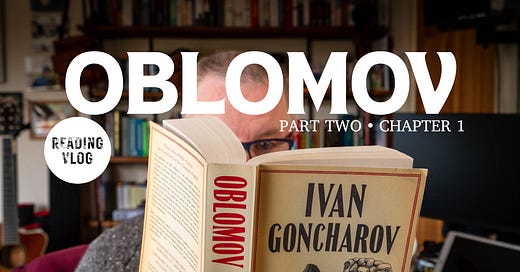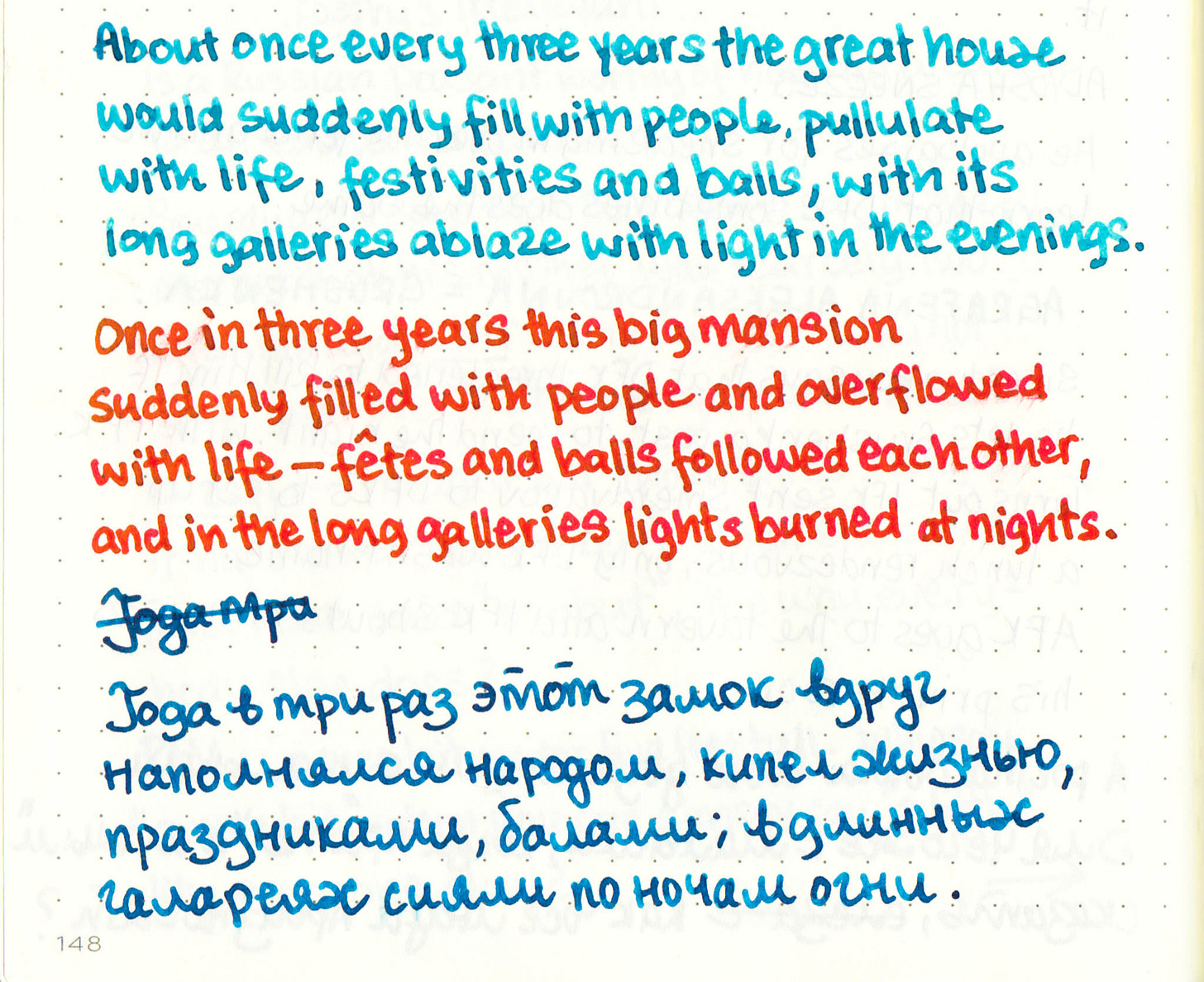Welcome to Part Two! It’s great, isn’t it? So, d’you think Ilya Ilyich will finally get out the house in this part? Let’s dive in and see.
We closed out part 1 with the introduction of a character we’d only heard about up till now: enter Andrei Ivanovich Stolz! This part starts off by taking us through Stolz’ background. He was raised by a Russian mother and a German father, and Goncharov really shows the cultural differences between these nationalities. His mother is similar to Oblomov’s family in a lot of ways. Take this paragraph for example:
His mother was always worried when she saw Andrei disappear from the house for a day and, had it not been for the express orders of her husband not to interfere, she would have kept him at home.
So we see that Andrei’s father is the one that’s setting the rules for his son’s upbringing, much to his mother’s chagrin. But where Oblomov has a wholly Russian family, it’s Andrei’s Germanness that leads his education and shapes his character. But, he still maintains some of that Russian mysticism in his relationship with Ilya Ilyich—more on that in a future chapter.
The German elements in Andrei’s make-up were countered by the influence of Oblomovka and that of the princely house with its spacious, leisurely life of aristocratic ease and both thus prevented his turning into the honest “burgher” or even the philistine he might otherwise have become.
Does some of this Germanness not rub off on Ilya Ilyich through his close relationship with Andrei? Again, we shall see that in a chapter to come.
Translation
I came across a word in the Pearl translation that I hadn’t seen before. I talk about it in the video, so for my reading audience, I shall just paste a shot of two translations (Pearl and Magarshak) along with the Russian and then ask if any of you have ever seen the word pullulate before. It’s great, isn’t it?
Or do you prefer ‘overwhelm’? I find this kind of thing fascinating. The Russian word is derived from the verb кипеть, meaning to boil, seethe, boil over. So, for me, overwhelm doesn’t quite cut the mustard. But then pullulate, while a wonderful word, is, I suspect, a word that most people won’t know, so it kind of took me out of the text. Although, as a linguist, having it take me out of the text was delightful, but it might jar a bit for those that just want a smooth reading without having to reach for a dictionary.
Video Review
Question
Let me know how you see the differences between the Russian and German cultures. Is this an interesting part of the novel for you?






When I read the sentence with the word pullulate the definition that seemed intuitive to me was throb. It throbbed with life. I made up that definition out of whole cloth and read on. So I didn’t bother to look it up. Now that you have brought the word to our attention I did look it up and the definition that I like is teem. It teemed, or overflowed, with life.
What about Stoltz’s mother? By the end of the chapter she was no longer there, no mention of her death, or grief, just gone. I thought it was interesting how Goncharov wrote that, verifying Mother’s opinion of Germans, perhaps.
It was good to finally meet Stoltz, it seems like he is going to be quite a character.